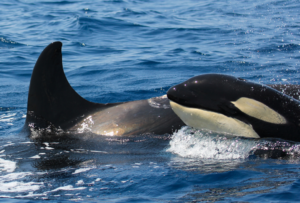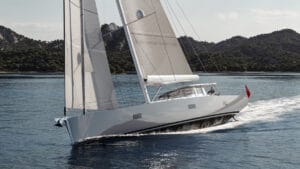RNLI lifeboat flotilla celebrates 200 years of saving lives

More than 40 rescue vessels, including both current and historical RNLI lifeboats as well as international boats, have celebrated the Royal National Lifeboat Institution (RNLI) 200th anniversary.
The mile-long flotilla met last weekend in Poole, Dorset, and featured more than 20 historic RNLI lifeboats, the current lifeboat fleet including the most modern 25-knot lifeboat, the Shannon class, alongside current inshore lifeboats and the RNLI inshore rescue hovercraft.

International lifeboats were welcomed from France, Netherlands, Germany and Sweden. The oldest rescue craft taking part was a Swedish rowing lifeboat from 1868.
“As we commemorate the RNLI’s 200th anniversary this year, it was very special to be able to invite supporters, volunteers, historic lifeboat owners, and international search and rescue partners to this event showcasing our lifesaving work and providing a glimpse behind the scenes,” says RNLI chief executive Mark Dowie.
“The parade of sail was a wonderful spectacle to close the weekend’s festivities and illustrated the remarkable technological developments in lifeboat design since the RNLI was founded in 1824. Alongside our current fleet of state-of-the-art lifeboats and hovercraft, it was impressive to see lifeboats more than 100 years old on the water, which is testament to their original design and construction.”
The oldest RNLI vessel taking part in the flotilla, the rowing lifeboat, the William Riley, went on active service in 1909 and saved 35 lives in 1914 during the First World War. The hospital ship, SS Rohilla, which was carrying wounded soldiers from Dunkirk, was caught in a fierce storm and ran aground. Although being badly damaged itself in the rescue operation, the lifeboat spent 50 hours at sea.
Since the RNLI was founded in 1824, its lifeboat crews and lifeguards have saved 146,277 lives – this equates to an average of two lives saved every day for 200 years.

The charity actually celebrated its ‘birthday’ on 4 March. Founded in a London tavern in 1824 following an appeal from Sir William Hillary, who lived on the Isle of Man and witnessed many shipwrecks, the RNLI has continued saving lives at sea throughout the tests of its history, including tragic disasters, funding challenges and two World Wars.
Image of boat in swimming pool courtesy of Charis Walker. All other courtesy of Nathan Williams.










